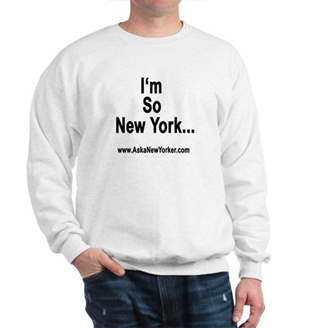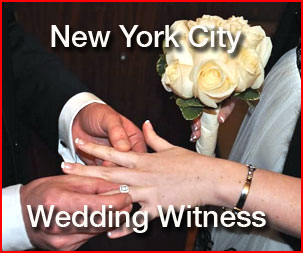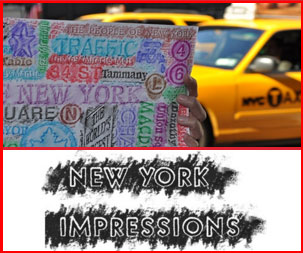Baroness Margaret Thatcher, the only woman to become British prime minister, has died at the age of 87. She suffered a stroke. A frequent Visitor to America, while in New York Margaret Thatcher stayed at the Waldorf Astoria and today staff remembered her with affection. President Barack Obama memorialized her saying, “the world has lost one of the great champions of freedom and liberty, and America has lost a true friend. As a grocer’s daughter who rose to become Britain’s first female prime minister, she stands as an example to our daughters that there is no glass ceiling that can’t be shattered. As prime minister, she helped restore the confidence and pride that has always been the hallmark of Britain at its best. And as an unapologetic supporter of our transatlantic alliance, she knew that with strength and resolve we could win the Cold War and extend freedom’s promise.”
His statement, continued: “Here in America, many of us will never forget her standing shoulder to shoulder with President Reagan, reminding the world that we are not simply carried along by the currents of history—we can shape them with moral conviction, unyielding courage and iron will. Michelle and I send our thoughts to the Thatcher family and all the British people as we carry on the work to which she dedicated her life—free peoples standing together, determined to write our own destiny.”
Nicknamed the “Iron Lady” by the Soviet press after a 1976 speech declaring that “the Russians are bent on world dominance,” Thatcher later enjoyed a close working relationship with U.S. President Reagan, with whom she shared similar conservative views and in correspondence always referred to as ‘Ron.’ Thatcher was known for her personal and political toughness and as the British cold war warrior she played a key role in ending the conflict by giving her stamp of approval to Soviet Communist reformer Mikhail Gorbachev shortly before he came to power. “I like Mr. Gorbachev. We can do business together,” she declared in December 1984, three months before he became Soviet leader. Today the former Soviet leader paid tribute:
“Our first meeting in 1984 marked the beginning of a relationship that was difficult sometimes, not always smooth, but serious and responsible from both sides. Gradually, human relations developed as well, they became more and more friendly. Eventually we were able to reach mutual understanding, and this contributed to changes in atmosphere between our country and the West, and to the end of the Cold War. Margaret Thatcher was a great politician. She will remain in our memory and in history.” He said.
Thatcher served from 1975 to 1990 as leader of the Conservative Party until she retired from public life after a stroke in 2002. She suffered several strokes after that. Thatcher made few public appearances in her final months, missing a reception marking her 85th birthday hosted by Prime Minister David Cameron in October 2010 and also skipped the July 2011 unveiling of a statue honoring her old friend Ronald Reagan in London. Thatcher’s remarkable journey began in October 1925 in the small eastern England town of Grantham where she was born Margaret Roberts. She came from a modest background, and always took pride in being known as a grocer’s daughter. Though she studied chemistry at Oxford, she was involved in politics from a young age and gave her first political speech at 20. She married Denis Thatcher and together they had Twins Carol and Mark.
Elected leader of the Conservative Party when the party was in opposition she made history four years later, becoming prime minister when the Conservatives won the elections of 1979, the first of three election victories to which she led her party.
As British leader, Thatcher took a firm stance with the European Community — the forerunner of the European Union — demanding a rebate of money London contributed to Brussels. Thatcher’s positions on other issues, both domestic and foreign, were just as firm, and in one of her most famous phrases, she declared at a Conservative Party conference that she had no intention of changing her mind. “To those waiting with bated breath for that favorite media catchphrase, the U-turn, I have only one thing to say: ‘You turn if you want to. The lady’s not for turning,'” she declared, to cheers from party members. The United Kingdom fought a short, sharp war against Argentina over the Falklands Islands under Thatcher in 1982, responding with force when Buenos Aires laid claim to the islands. Lady Thatcher, who was awarded title of Baroness Thatcher of Kesteven in 1992, had suffered a series of strokes in recent years, and in 2005 her doctors advised that she should no longer give speeches. Her decline was dramatized in the 2011 feature film The Iron Lady starring Meryl Streep who won a Golden Globe, BAFTA, and an Oscar for her role. When told of Thatcher’s death Streep said: ”To me she was a figure of awe for her personal strength and grit. To have come up, legitimately, through the ranks of the British political system, class bound and gender phobic as it was, in the time that she did and the way that she did, was a formidable achievement.” The award winning actress was not along in paying tribute. A Buckingham Palace spokesman said: “The Queen was sad to hear the news of the death of Baroness Thatcher. Her Majesty will be sending a private message of sympathy to the family.” David Cameron, the current prime minister, said: “It was with great sadness that l learned of Lady Thatcher’s death. We’ve lost a great leader, a great prime minister and a great Briton.” Current Labour leader Ed Miliband said, “The Labour Party disagreed with much of what she did and she will always remain a controversial figure. But we can disagree and also greatly respect her political achievements and her personal strength.” In accordance with her wishes Thatcher will not receive a state funeral but will be honored by a church service at St. Paul’s Cathedral in London, where she will be accorded military honors followed by a private cremation.
.











